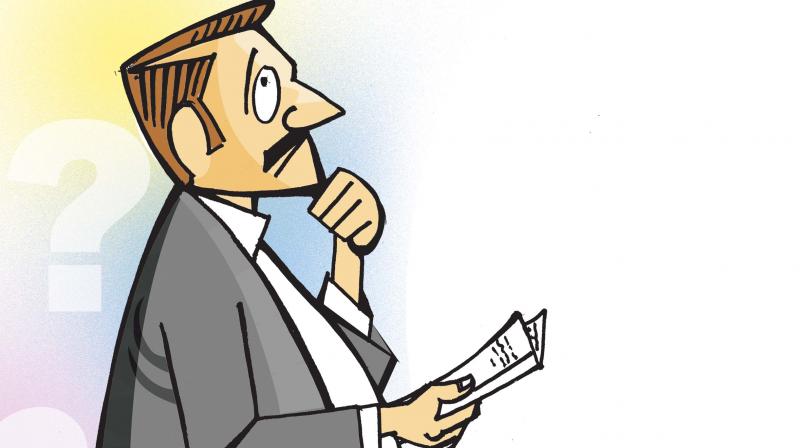Lawyers can't refuse to defend accused

Chennai: An accused has a constitutional right to avail legal services of a lawyer and a lawyer cannot refuse to appear or defend an accused whether they are terrorist, rapists, murderers or any others, unless he has justifiable reasons.
As per the code of conduct framed by the Bar Council of India, every advocate, on his/her being approached by a litigant, is bound to offer his/her services to him/her unless he has justifiable reason to refuse his/her services. Further, the Supreme Court of India has restrained the advocates’ associations from interfering with the decision of an advocate to appear before the courts when court boycott calls are announced and the advocates who violate such calls could not be removed from their membership of that association.
“In criminal cases, right to avail legal services of an advocate is a constitutional right of an accused. Further, right to access justice delivery system is also a basic structure of the Constitution of India. Hence, easy availability of quality legal services and the independent performance of function by the chosen advocate without fear or favour and with full dedication is the basic necessity of every society where the Rule of Law is the basic structure of the Constitution”, said senior lawyer A. Sirajudeen, practising in Supreme Court.
Recently, Supreme Court put an end to the growing trend of advocates’ associations passing resolutions not to allow lawyers to defend persons accused of heinous and child sexual abuse offences, by terming such resolutions illegal.
During the hearing on Ryan case, the District Bar Association, Gurugram, informed the court that the resolution had been withdrawn. However, the apex court had said, “It is necessary to state without any hesitation that an accused, whatever the offence may be, has the inherent right to be represented by a counsel of his choice. The tradition of the bar and the fundamental conception pertaining to access to justice does not permit any bar association to pass a resolution of the nature that had been done”.
In 2010, the Supreme court had ruled that lawyers or their associations cannot refuse to appear for accused whether they were terrorist, rapists, murderers or any others as such refusal would be a violation of the Constitution, Bar Council norms and tenets of the Bhagavad Gita.
Deprecating the growing tendency among bar associations across the country to pass resolutions against appearing for certain accused persons for some reason or the other, a division bench comprising Justices Markandeya Katju and Gyan Sudha Mishra of the apex court had said, “Professional ethics requires that a lawyer cannot refuse a brief, provided a client is willing to pay his fee, and the lawyer is not otherwise engaged. Hence, the action of any Bar Association in passing such resolution that none of its members will appear for a particular accused, whether on the ground that he is a policeman or on the ground that he is a suspected terrorist, rapist, mass murderer etc., is against all norms of the Constitution, the statute and professional ethics”.
The apex court had cited Article 22 (1) of the Constitution, which says, “no person who is arrested shall be detained in custody without being informed, as soon as may be, of the grounds for which arrest has been made nor shall he be denied his right to consult, and to be defended by, a legal practitioner of his choice”.
The bench made the observations while dealing with the counter criminal cases filed by policemen and lawyers of Coimbatore district in Tamil Nadu during an agitation in 2007.
At that time, the Bar Association of Coimbatore had passed a resolution that no member of the Coimbatore Bar will defend the accused policemen in the cases against them.
Senior counsel Sirajudeen said, “In India, we notice a few instances in which some public organizations make a call to the advocate community not to appear for some persons. In Nithari killing case in which, a person was accused of killing number of children after sexually abusing them, the local bar staged protest against him and even called upon the advocates not to render their services to him. In number of cases in which advocates are victims, we see instances of the local bar passing resolution banning advocates from appearing for the accused in those cases”.
Sirajudeen added, “Right to legal aid is the Constitutional right of every accused. When this right is put in peril, the Constitutional courts have interfered and even ordered the transfer of cases from that area to some other places so that the undue influence of the local bars would be erased and the trial of the case would go on without any hindrance and the rights of all the accused are protected”.
When lawyers quit party, bar assn
In some cases, where the women are victims, women organizations used to assemble before courts when the accused are produced and raise slogans against him. In Tiruchy, when controversial godman Premananda was arrested and prosecuted, one popular criminal lawyer Venkatachalam appeared for him. Since he was in a political party at that time, his party leaders objected to his appearance in that case. To free himself from such pressures, that advocate resigned from his party and continued to defend the accused. Similarly, Vridhachalam Reddiar, a popular trial lawyer, never became a member of the advocates associations and used to boycott the boycott calls of the advocates associations. When he got time, to take rest, he used to sit in the idle court halls, says senior advocate A.Sirajudeen, practicing in Supreme Court.

